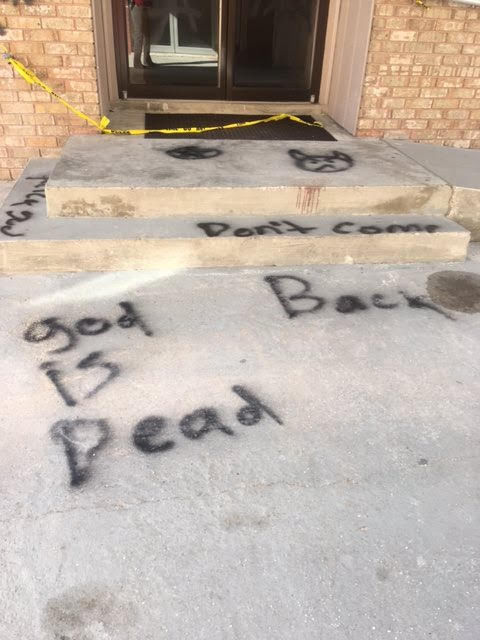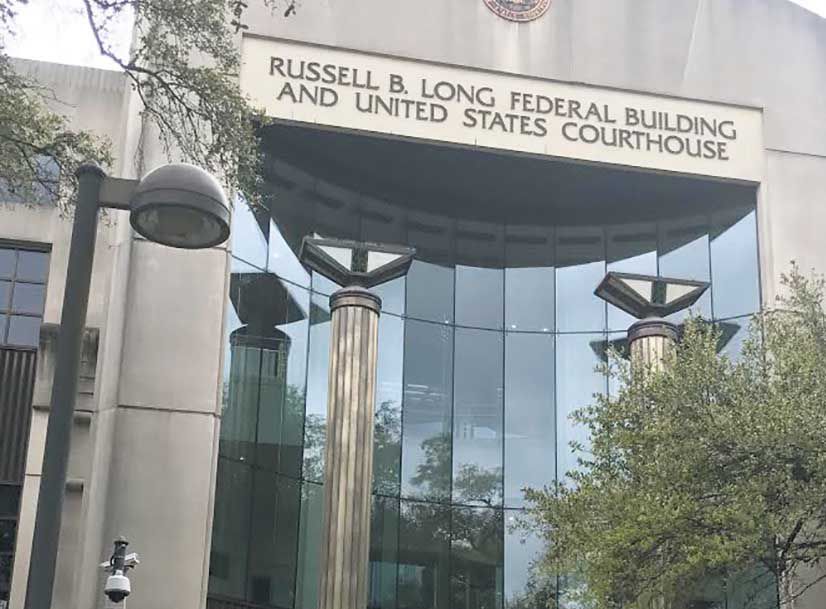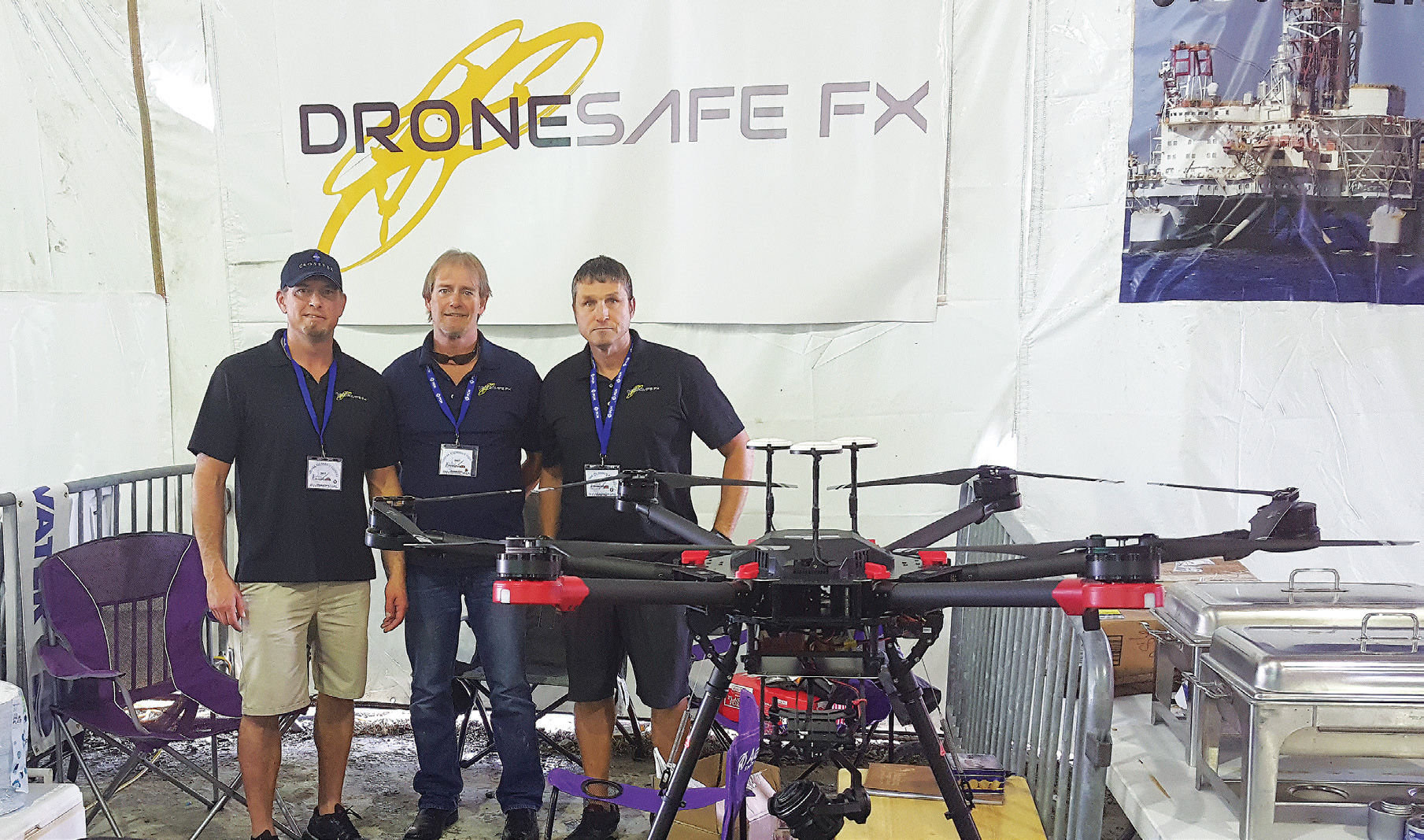
Services continue at local church after act of vandalism last week
June 14, 2017
Final salvos fired in judgeship case
June 14, 2017Troy Guerrero and John Hebert have been expanding their business over the past year.
The expansion has not just been on the ground level, though. While the pair have recently added new companies under their main umbrella, they have also brought their business to the skies.
Guerrero and Hebert are both operating managers at DigiFX, the marketing and programming company Guerrero founded in Houma more than a decade ago. About ten months ago, Guerrero and Hebert worked with Kenny Hebert and Mark Chiasson to add two different yet intertwined businesses to the name: IconoFX and DroneSafeFX. IconoFX is a multimedia production company handling everything from sound processing and engineering to making full commercials in-house. DroneSafeFX is a separate business utilizing unmanned aircraft systems, commonly referred to as drones, for commercial and industrial photography and surveying.
The aerial addition to the company has been a long time coming for Guerrero and Hebert. According to Guerrero, he and Hebert have been flying drones for about four years. They both wanted to move flying from a hobby to a part of their work lives, but regulatory hurdles stopped them from doing so.
“We had the same thought process: well, we want to open up a company with drones. At the time, the [Federal Aviation Administration] rules and regulations didn’t allow commercial drones for profit,” Hebert said.
There are still a number of regulations for commercial drone flying, but Guerrero and Hebert said they have been updated to allow more use. Recreational drone flyers do not need any pilot’s license or flight training, but they must keep their devices below 400 feet in the air and within sight at all times. Those wishing to use a drone for commercial purposes must acquire a Section 333 Exemption from the FAA, which requires applicants to log at least 20 hours of flight time and earn a sport pilot certificate. A number of local businesspeople, particularly photographers, have taken flight courses with Charlie Hammonds at the Houma-Terrebonne Airport to earn the exemption.
According to Hebert, however, the 333 waiver mainly covered multimedia work. While that is certainly an important part of DroneSafeFX’s business, particularly in providing a new perspective for real estate photos, Guerrero and Hebert also wanted to use their drones in industrial work, which was not covered by the 333 exemption. However, rule updates have opened up that avenue, and now DroneSafeFX has birds in the air doing pipeline, structural and agricultural surveying.
Hebert said IconoFX has five employees who work in unison with DroneSafeFX. He said DroneSafe trains their own employees, but they have also all earned their pilot’s licenses. Hebert said DroneSafe requires employees to log 40 hours of flight time before letting themrun a job with the drones. According to Hebert, about 55 percent of employees under the entire DigiFX umbrella come from offshore or industrial backgrounds. He said that kind of experience has made it easier for the company to find and execute industrial work.
“We have a lot of experience in that type of business, so it was an easy transition for us,” Hebert said. “We saw these drones’ benefits years ago, and now that the technology’s where it’s at, the equipment’s where it’s at and the FAA’s where it’s at, it just allows us to start implementing some of these things.”
Guerrero said the response from industry to his company’s services have varied by company. Some are still getting used to the idea of drones and are hesitant to stray from using helicopters, while others are ready to incorporate the devices into their work. Guerrero said while the oil and gas downturn has been tough on the area’s businesses, it has also opened up an opportunity in all companies turning over every stone for savings. According to Guerrero, the cost differential between his drones and chartering a helicopter for inspections is one of his main selling points.
“The benefit of it is helicopters are very expensive. When we tell them we can save them money, they get it,” Guerrero said.
The company currently has seven drones, each a different size and suited for a different job, according to Guerrero. Hebert said the company has stuck with high-end drones built by popular brand DJI because its GPS accuracy, quality hardware and user-friendly flying systems make for the safest jobs.
Public safety is another avenue Guerrero and Hebert are interested in exploring with their drones. They said they have been speaking to public safety officials from Terrebonne and Lafourche parishes about using drones in search and rescue missions. They said DroneSafe could work in tandem with a helicopter in such situations, with the easy-to-launch drones providing a quick response time before the helicopter gets off the ground and starts tracking large swaths of land.
“If we could offer a situation where we could save someone’s life, we want to do that,” Guerrero said. “We can help and speed up the process of finding someone stuck out in the swamp somewhere or something like that. They know that we’re part of the community that we want to help out.” •








